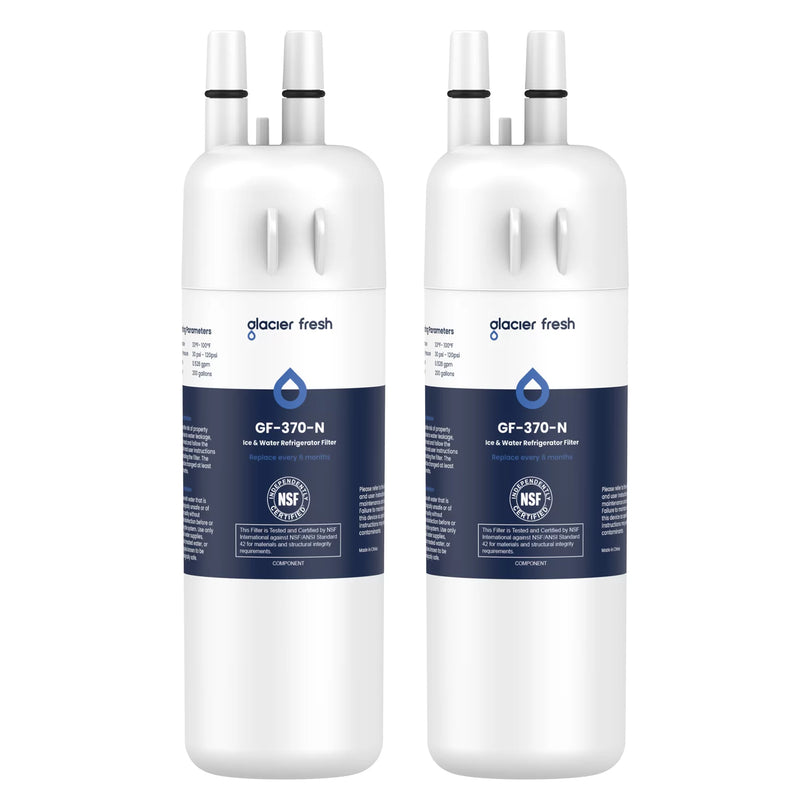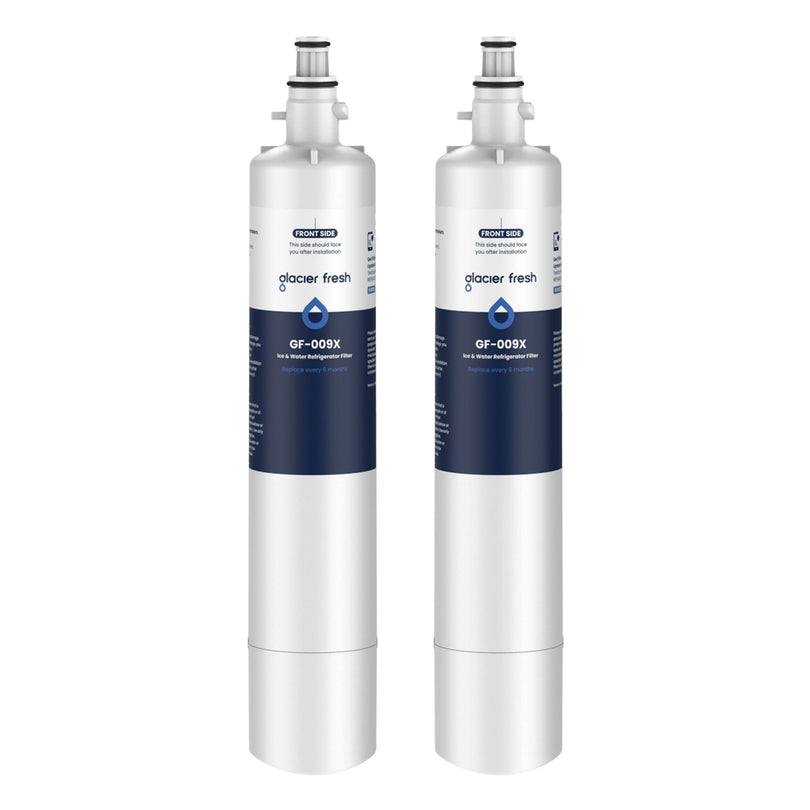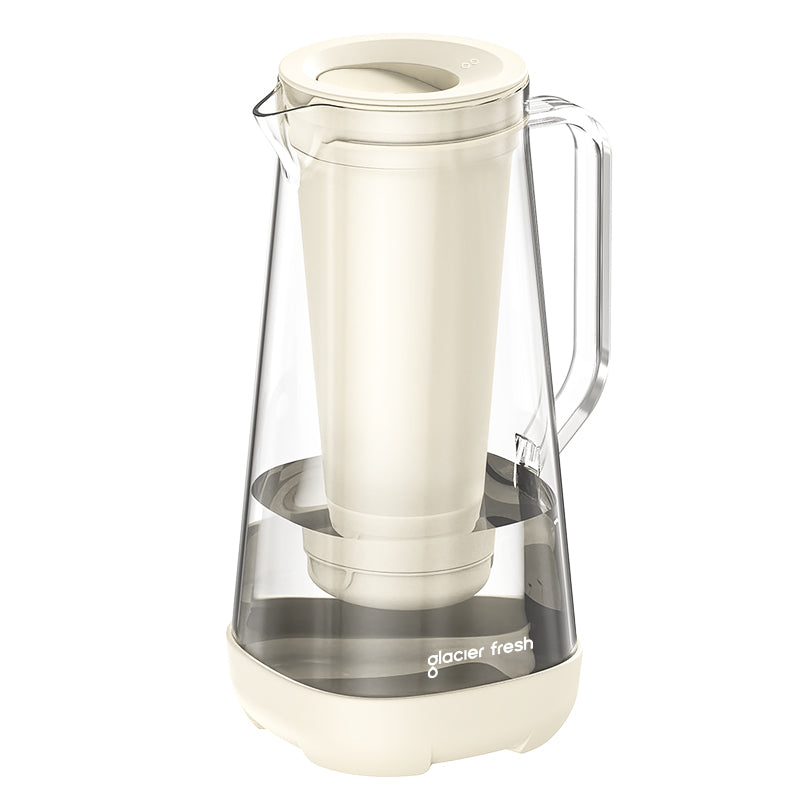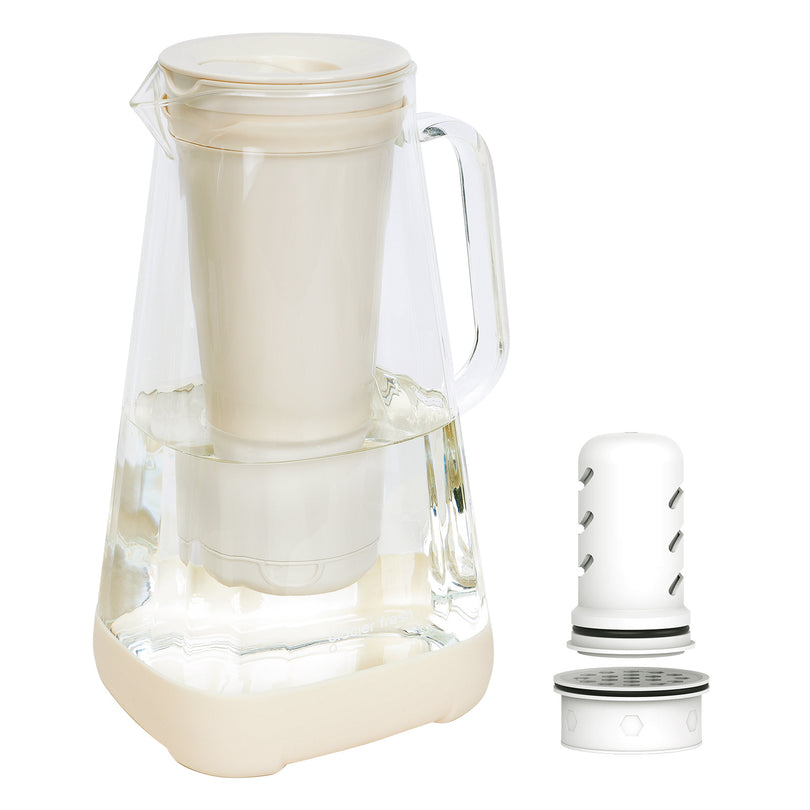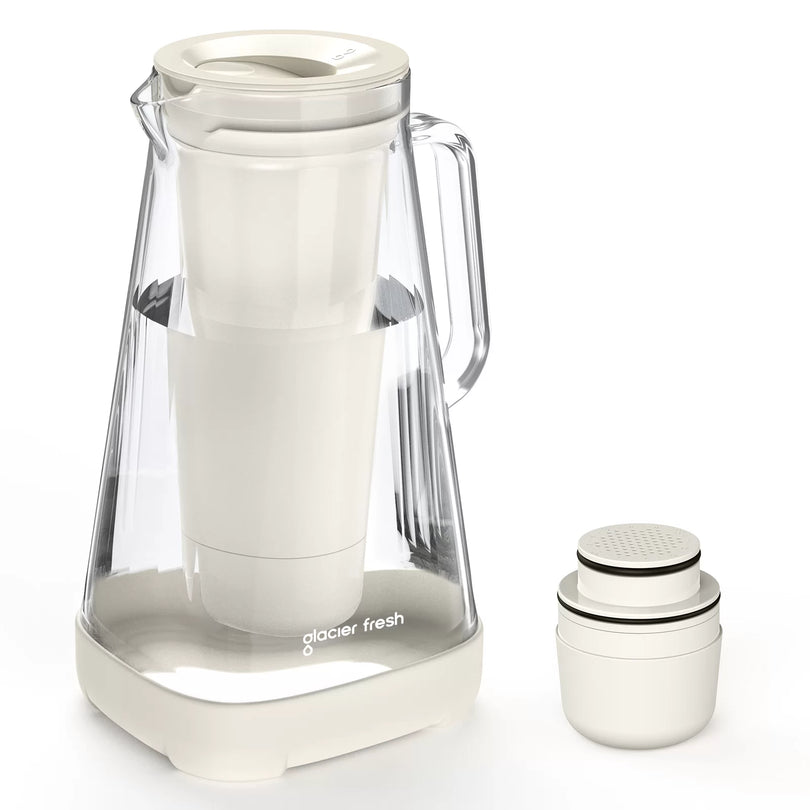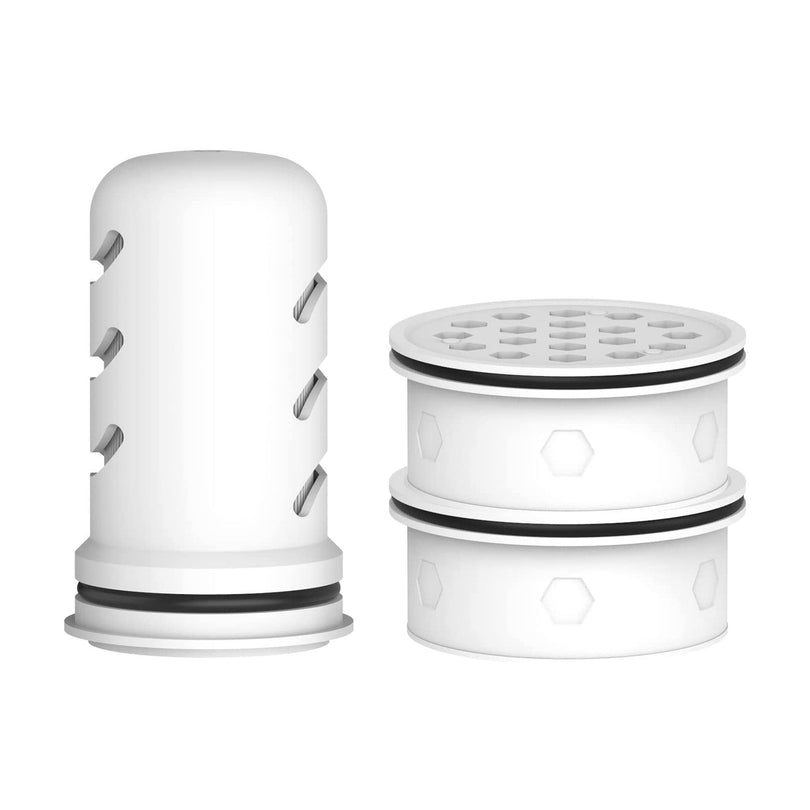Table of Contents:
Die Bedeutung von sauberem Wasser bei Weltraummissionen
Wasserquellen auf der Internationalen Raumstation (ISS)
Wasserfiltertechnologien auf der ISS
Herausforderungen und zukünftige Entwicklungen bei der Wasserfiltration im Weltraum
FAQs
Abschluss
In den Weiten des Weltraums ist jede Ressource kostbar, insbesondere Wasser. An Bord der Internationalen Raumstation (ISS) stehen Astronauten vor der Herausforderung, eine kontinuierliche Versorgung mit sauberem Wasser für ihren täglichen Bedarf sicherzustellen. Um diese anspruchsvolle Aufgabe zu bewältigen, werden in der Raumstation fortschrittliche Wasserfiltersysteme eingesetzt, um das Wasser zu reinigen und zu recyceln.
In diesem Artikel tauchen wir in die faszinierende Welt der Wasserfilterung im Weltraum ein und erkunden die Methoden, die Astronauten verwenden, um Tausende von Kilometern über der Erdoberfläche eine sichere und saubere Wasserversorgung sicherzustellen.
Die Bedeutung von sauberem Wasser bei Weltraummissionen
Die Herausforderungen bei der Gewinnung von sauberem Wasser im Weltraum
Die Gewinnung von sauberem Wasser im Weltraum stellt aufgrund der begrenzten Ressourcen und der entscheidenden Bedeutung von Wasser für die Erhaltung des Lebens während Weltraummissionen eine große Herausforderung dar. Herkömmliche Methoden der Wasseraufbereitung werden in der Mikrogravitation des Weltraums immer komplexer.
Die Filtertechnologie muss so angepasst werden, dass sie auch ohne Schwerkraft effektiv funktioniert. Dies erfordert innovative Lösungen zur Trennung von Verunreinigungen vom Wasser. Die Gesundheit von Astronauten hängt direkt von der Qualität des von ihnen konsumierten Wassers ab. Daher ist es entscheidend, sicherzustellen, dass alle Verunreinigungen effektiv entfernt werden. Weltraummissionen sind in hohem Maße auf eine stabile und sichere Wasserversorgung angewiesen, um den Flüssigkeitsbedarf der Besatzung zu decken und verschiedene Aufgaben an Bord des Raumfahrzeugs zu erfüllen.
Die Folgen von kontaminiertem Wasser im Weltraum
Zu den Gesundheitsrisiken durch den Konsum von kontaminiertem Wasser zählen Magen-Darm-Probleme, Dehydration und sogar Infektionen, die die Fähigkeit der Besatzung beeinträchtigen können, für den Erfolg der Mission wichtige Aufgaben zu erfüllen. Kontaminationen im Weltraum können verschiedene Ursachen haben, beispielsweise Gerätestörungen, Mikroorganismen oder das Austreten von Chemikalien. Ohne angemessene Behandlung können diese Verunreinigungen zunehmen und das Wohlbefinden der Besatzung erheblich gefährden.
Wasserquellen auf der Internationalen Raumstation (ISS)
Wasserversorgung aus der Erde und Nachschubmissionen
Die Wasserversorgung der Internationalen Raumstation (ISS) erfolgt hauptsächlich durch Nachschubmissionen von der Erde. Hier sind einige Methoden, um eine saubere Wasserversorgung an Bord der ISS sicherzustellen:
- Methoden zur Wasserversorgung : Wasser wird von der Erde aus auf Versorgungsmissionen mit Raumfahrzeugen wie der Dragon von SpaceX oder der russischen Progress geschickt.
- Solardestillation : Bei der Solardestillation wird Wasser mithilfe von Sonnenlicht verdampft, wobei Verunreinigungen zurückbleiben, und der Dampf wird anschließend wieder zu flüssigem Wasser kondensiert.
- Vakuumdestillation : Bei der Vakuumdestillation wird Wasser bei niedrigem Druck gekocht, wodurch es in Dampf umgewandelt wird, der dann gesammelt und zu reinem Wasser kondensiert wird.
- Elektrochemische Reinigung : Bei diesem Verfahren wird elektrischer Strom durch Wasser geleitet, um Verunreinigungen zu trennen und so eine saubere Wasserversorgung zu gewährleisten.
- Filtrationsmembranen : Filtrationsmembranen werden verwendet, um Verunreinigungen physikalisch aus dem Wasser zu filtern und so den Astronauten an Bord der ISS sicheres Trinkwasser zur Verfügung zu stellen.
Wassersammlung aus Urin und anderen Quellen
Die Gewinnung von Wasser aus Urin und anderen Quellen ist für die nachhaltige Wasserversorgung an Bord der Internationalen Raumstation (ISS) von entscheidender Bedeutung. Urinrecycling spielt bei der Wassergewinnung auf der ISS eine wichtige Rolle. Die Systeme der Raumsonde sind darauf ausgelegt, Urin zu sammeln, zu filtern und zu reinigen, um daraus Trinkwasser zu gewinnen.
Eine weitere Methode zur Wassergewinnung ist die Kondensationssammlung. Die Feuchtigkeit in der Luft wird aufgefangen, kondensiert und anschließend durch ein Filtersystem geleitet, um ihre Reinheit zu gewährleisten. Der Filterprozess entfernt Verunreinigungen und Schadstoffe, um die strengen Standards für Trinkwasser auf der ISS zu erfüllen.
Wasserrückgewinnungs- und Recyclingsysteme
Die effiziente Rückgewinnung und Wiederverwertung von Wasser auf der Internationalen Raumstation (ISS) ist von entscheidender Bedeutung für die Aufrechterhaltung von Langzeitmissionen und die Verringerung der Abhängigkeit von Wasserversorgungsmissionen der Erde.
- Filtersysteme: Filtersysteme an Bord der ISS spielen eine entscheidende Rolle bei der Entfernung von Schadstoffen und Verunreinigungen aus dem gesammelten Wasser und stellen sicher, dass es den Sicherheitsstandards für den Verbrauch entspricht.
- Wasserrecycling: Die ISS nutzt eine fortschrittliche Wasserrecyclingtechnologie, die Abwasser, darunter Urin, Schweiß und Feuchtigkeitskondensat, reinigt und in sauberes Trinkwasser für die Besatzung umwandelt.
- Hygiene der Astronauten: Wasserrückgewinnungs- und Recyclingsysteme unterstützen auch die Hygiene der Astronauten, indem sie Wasser für persönliche Hygieneaufgaben wie Händewaschen und Zähneputzen bereitstellen und so zur Aufrechterhaltung von Sauberkeit und Gesundheit an Bord der Station beitragen.
In der einzigartigen Umgebung der Mikrogravitation müssen Herausforderungen wie Wasserverteilung, Eindämmung und Luftblasen in Systemen bewältigt werden.
Wasserfiltertechnologien auf der ISS
Das Umweltkontroll- und Lebenserhaltungssystem (ECLSS)
Das Environmental Control and Life Support System (ECLSS) ist für die Aufrechterhaltung der Wasserfiltertechnologien auf der Internationalen Raumstation (ISS) von entscheidender Bedeutung. Das ECLSS stellt sicher, dass Wasser aus verschiedenen ISS-Wasserquellen mithilfe fortschrittlicher Wasserrecyclingtechnologien effizient recycelt wird.
- ECLSS-Wartung: Eine regelmäßige Wartung des ECLSS ist unerlässlich, um die ordnungsgemäße Funktion von Wasserfiltersystemen sicherzustellen.
- ISS-Wasserquellen: Das ECLSS verarbeitet Wasser aus verschiedenen Quellen auf der ISS, darunter Abwasser und Kondenswasser.
- Wasserrecyclingtechnologien: Im ECLSS werden fortschrittliche Wasserrecyclingtechnologien eingesetzt, um Wasser für die Wiederverwendung zu reinigen und zu filtern.
- Salzlake-Prozessoren: Salzlakeprozessoren spielen eine entscheidende Rolle bei der Entfernung von Verunreinigungen und Schadstoffen aus dem Wasser während der Filtration.
- Zukünftige Entwicklungen: Wissenschaftler und Ingenieure entwickeln kontinuierlich effizientere Wasserfiltertechnologien für zukünftige Weltraummissionen.
Wassersubsystemmanager im Johnson Space Center
Als Water Subsystems Manager im Johnson Space Center betreuen Sie die komplexen Wasserfiltertechnologien der ISS. Ihre Aufgabe ist entscheidend, um die konstante Versorgung der Raumstation mit sauberem Wasser sicherzustellen, das für die Gesundheit der Astronauten unter den anspruchsvollen Bedingungen des Weltraums unerlässlich ist. Das Johnson Space Center ist führend in der Weltraumtechnologie, und die Fortschritte bei Wasserfiltersystemen spielen eine entscheidende Rolle für die Erhaltung des Lebens an Bord der ISS.
Ihre Wasserfiltersysteme sind darauf ausgelegt, Abwasser, einschließlich Urin, Schweiß und Kondenswasser, in sicheres Trinkwasser umzuwandeln. Diese innovativen Technologien entfernen Verunreinigungen und Bakterien und bieten Astronauten eine zuverlässige Quelle für sauberes Wasser zur Flüssigkeitszufuhr, Essenszubereitung und Hygiene. Der Erfolg dieser Filtersysteme ist von größter Bedeutung für den Schutz der Gesundheit der Astronauten und die Ermöglichung langfristiger Weltraummissionen.
Die Rolle von Soleprozessoren bei der Wasserfiltration
Soleaufbereitungsanlagen spielen eine entscheidende Rolle in der Wasserfiltertechnologie der ISS und gewährleisten eine nachhaltige Versorgung der Astronauten mit sauberem Wasser. Sie sind wesentliche Bestandteile des Wasserrecyclingsystems und sorgen für die Reinigung von Abwasser und Urin zu Trinkwasser. Hier sind die Gründe für die Bedeutung von Soleaufbereitungsanlagen:
- Effiziente Filterung : Salzlakeprozessoren zeichnen sich durch eine hohe Filtereffizienz aus und entfernen Verunreinigungen effektiv aus dem Wasser.
- Abfallmanagement : Sie tragen zum Abfallmanagement bei, indem sie Wasserressourcen effizient recyceln und wiederverwenden.
- Salzentfernung : Salzaufbereitungsanlagen sind dafür konzipiert, Salze und Mineralien aus dem Wasser zu entfernen, sodass es für den Verzehr unbedenklich ist.
- Wasseraufbereitung : Durch verschiedene Filtermethoden stellen Salzwasseraufbereitungsanlagen sicher, dass das Wasser so aufbereitet wird, dass es den strengen Qualitätsstandards an Bord der ISS entspricht.
- Nachhaltigkeit : Sie spielen eine Schlüsselrolle für die Nachhaltigkeit der ISS, indem sie den Bedarf an Wassernachschubmissionen reduzieren und die Autarkie fördern.
Herausforderungen und zukünftige Entwicklungen bei der Wasserfiltration im Weltraum

Die komplexe Wartung nachhaltiger Wasserfiltersysteme im Weltraum stellt Astronauten und Ingenieure vor große Herausforderungen. Zukünftige Innovationen in der Wasserfilterung sind entscheidend für den Erfolg langfristiger Weltraummissionen.
Eine der größten Herausforderungen für die Filtration im Weltraum ist die begrenzte Verfügbarkeit von Ressourcen. Daher ist die Entwicklung effizienter und nachhaltiger Lösungen zur Wasseraufbereitung unerlässlich. Technologische Fortschritte sind entscheidend für die Bewältigung dieser Herausforderungen. Forscher arbeiten kontinuierlich an der Verbesserung von Filtersystemen, um den besonderen Anforderungen der Weltraumumgebung gerecht zu werden.
Um diese Hindernisse zu überwinden, konzentrieren sich zukünftige Entwicklungen in der Wasserfiltration auf die Verbesserung der Zuverlässigkeit und Effizienz bestehender Systeme und die Erforschung neuer Methoden zur Optimierung von Wasserrecyclingprozessen. Nachhaltige Lösungen, die Abfall und Energieverbrauch minimieren, sind wichtige Prioritäten, um eine kontinuierliche und sichere Wasserversorgung für Astronauten während längerer Weltraummissionen zu gewährleisten.
Da die Weltraumforschung immer weiter in den Kosmos vordringt, wird die Weiterentwicklung von Wasserfiltertechnologien für die Gesundheit und das Wohlbefinden der Menschen, die im Weltraum leben und arbeiten, von entscheidender Bedeutung sein.
FAQs
Wie wird die Wasserqualität auf der ISS überwacht und getestet?
Die Filtrationseffizienz ist entscheidend für die Reinheit des Wassers auf der ISS. Zur Qualitätssicherung werden regelmäßig Testmethoden und Schadstofferkennung eingesetzt. Die Überwachung gewährleistet den sicheren Wasserkonsum der Astronauten im Weltraum und unterstreicht die Bedeutung einer sauberen Wasserversorgung.
Was passiert, wenn ein Wasserfiltersystem im Weltraum versagt?
Wenn ein Wasserfiltersystem im Weltraum ausfällt, werden Notfallmaßnahmen ergriffen. Astronauten aktivieren Notfallpläne, befolgen Reparaturprotokolle und führen Systemwartungen durch. Die Folgen einer Störung können die Versorgung mit sauberem Wasser an Bord der ISS gefährden.
Abschluss
Denken Sie also beim nächsten Schluck Wasser an die unglaubliche Technologie und das Engagement, die dafür sorgen, dass Astronauten im Weltraum sauberes Wasser haben. Wasserfiltersysteme auf der ISS sind nicht nur für die Gesundheit der Astronauten unerlässlich, sondern auch ein wichtiger Aspekt für Nachhaltigkeit und Autarkie in der Weltraumforschung. Dank der kontinuierlichen Weiterentwicklung der Filtertechnologien sieht die Zukunft der Wasseraufbereitung im Weltraum vielversprechend aus. Sorgen Sie für ausreichend Flüssigkeitszufuhr und erkunden Sie weiterhin die Sterne!

